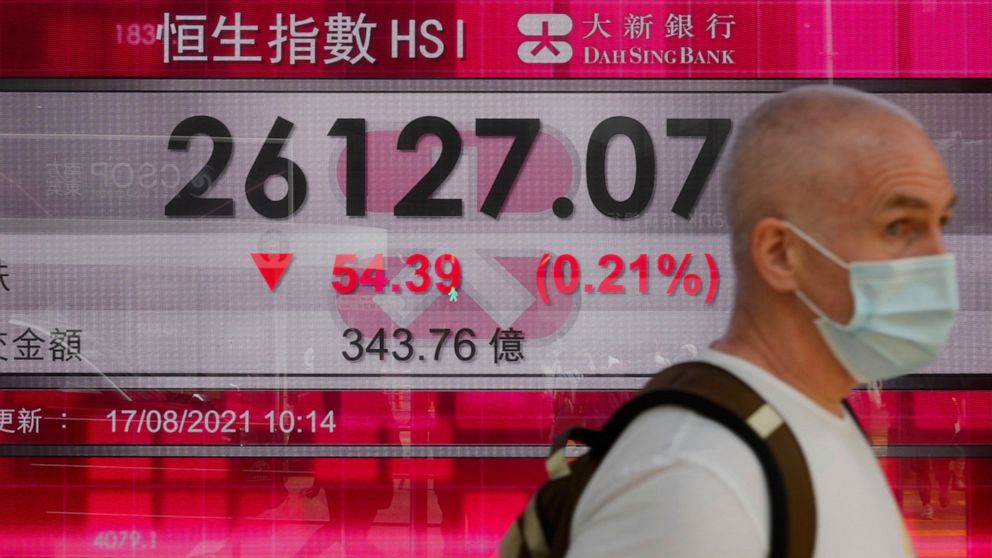Wall Street slips as retail sales post steep drop in July
Stocks fell in afternoon trading Tuesday, as data showed the coronavirus pandemic is still holding back the U.S. economy
BEIJING — Stocks fell in afternoon trading Tuesday, as data showed the coronavirus pandemic is still holding back the U.S. economy.
The S&P 500 index fell 1.1% as of 2:01 p.m. Eastern. The Dow Jones Industrial Average fell 426 points, or 1.2%, to 35,198 and the Nasdaq composite fell 1.3%. The Russell 2000 index of small company stocks was down 1.7%.
Technology firms and a mix of companies that rely on consumer spending dragged the broader market lower as investors become more concerned about the pace and breadth of economic growth amid a resurgent COVID-19. Those sectors tend to perform weakly in uncertain economic conditions.
The health care sector was alone in notching broad gains within the benchmark S&P 500. A mix of companies that sell food and personal goods, along with utilities and real estate companies held up better than most of the market as investors shifted money to less risky investments.
“There’s really a confluence of factors that are a wall of worry right now,” said Mike Stritch, chief investment officer of BMO Wealth Management.
Americans cut back on their spending last month as a surge in COVID-19 cases kept people away from stores. Retail sales fell a seasonal adjusted 1.1% in July from the month before, the U.S. Commerce Department said Tuesday. It was a much larger drop than the 0.3% decline Wall Street analysts had expected.
According to Tuesday’s report, spending fell at stores selling clothing, furniture and sporting goods. At restaurants and bars, spending rose nearly 2%, but the rate of growth has slowed from recent months as the delta variant spread and people worried about dining with others.
The weak sales report dragged down companies that rely on discretionary spending from consumers. Ralph Lauren fell 2.9% and Whirlpool slipped 4.8%.
“It doesn’t surprise me that we’re seeing a bit of an across the board sell-off, we’re a bit overdue,” said Stritch.
Major indexes had been trading at record highs on a mix of confidence from investors and friendly monetary policy from the Federal Reserve. Analysts still expect economic growth to continue through the year, but sentiment on Wall Street is becoming a bit more cautious on the pace.
Bonds were little changed on the news. The yield on the 10-year Treasury note fell to 1.25% from 1.26% the day before.
Markets also digested news that Chinese factory output, consumer spending and investment grew more slowly in July than expected. The government blamed flooding in central China and controls on travel and business to fight outbreaks of the coronavirus’s delta variant.
Shares of Home Depot fell more than 4% after the company told investors that sales were slowing compared to last year, when millions of locked-down Americans undertook home improvement projects.
Homebuilders fell broadly following a disappointing report from the National Association of Homebuilders. The organization said that builder confidence hit a 13-month low in July as companies worry about supply shortages and high costs. KB Home fell 5%.
![]()


